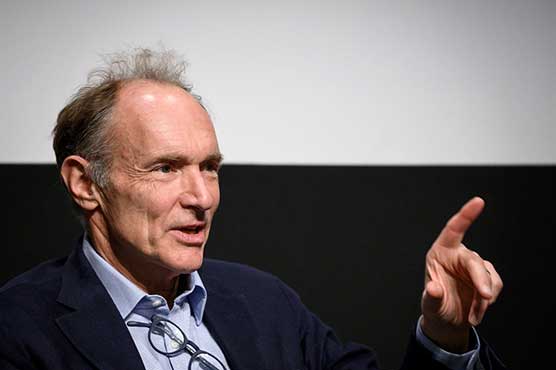Berners-Lee says World Wide Web, at 30, must emerge from 'adolescence'

Berners-Lee said users of the web had found it �not so pretty� recently
GENEVA (Reuters) - The fraying World Wide Web needs to rediscover its strengths and grow into maturity, its designer Tim Berners-Lee said on Monday, marking the 30th anniversary of the collaborative software project his supervisor initially dubbed “vague but exciting”.
Speaking to reporters at CERN, the physics research center outside Geneva where he invented the web, Berners-Lee said users of the web had found it “not so pretty” recently.
“They are all stepping back, suddenly horrified after the Trump and Brexit elections, realizing that this web thing that they thought was that cool is actually not necessarily serving humanity very well,” he said.
“It seems we don’t finish reeling from one privacy disaster before moving onto the next one,” he added, citing concerns about whether social networks were supporting democracy.
People who had grown up taking the internet’s neutrality for granted now found that the administration of U.S. President Donald Trump had “rolled that back”.
There was also a threat of fragmentation of the Internet into regulatory blocs - in the United States, the European Union, China and elsewhere - which would be “massively damaging”.
In an open letter to mark the anniversary, Berners-Lee said many people now felt unsure about whether the web was a force for good, but it would be defeatist and unimaginative to assume that it could not change for the better in the next 30 years.
“If we give up on building a better web now, then the web will not have failed us. We will have failed the web”, he wrote.
“It’s our journey from digital adolescence to a more mature, responsible and inclusive future”.
But he was optimistic because of a strong resolve among governments to avoid balkanization of the Internet, and a strong resolve among people in social networks who had - surprisingly - been shocked at people trying to hack elections.
He said the editorial power of Facebook’s algorithm was “scary”, but Facebook was clearly thinking about such questions a great deal, and that it and other social media firms backed the principle of letting users extract and move their data.
Amid the concern, Berners-Lee said the anniversary was something to celebrate, and warmly recalled how his boss ordered a computer model that CERN did not possess, a deliberate “plot” to enable his project under the guise of testing the interoperability of different computers.
The boss, Mike Sendell, had penciled in an assessment of his idea as “vague but exciting”.
“Thank goodness it wasn’t ‘Exciting but vague’,” Berners-Lee said.

